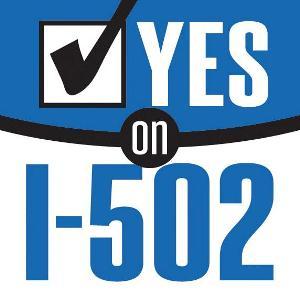Washington state's I-502 marijuana legalization is well-placed to emerge victorious on November 6, but it's going to be close.
We're a little more than a month from election day. Here's what's going on with the state-level initiatives.
The UN General Assembly heard a trio of Latin American leaders call for increased debate on alternatives to the war on drugs Wednesday, including hint of legalization talk.
Colombia's capital may be about to open drug consumption rooms for addicts, who will get their drugs by prescription. Colombian President Santos gave the go-ahead to Bogota Mayor Gustavo Petro Friday.
A Montana initiative that would endorse the legislature's gutting of the state's voter-approved 2004 medical marijuana law is leading in polls, but doesn't have 50%.
The DEA strikes again in Los Angeles, and the feds are moving to eliminate dispensaries in downtown LA. But the pushback against the crackdown continues.
The upper and lower chambers of the Swiss parliament have agreed on a marijuana decriminalization bill. Now it awaits a final vote next week.
Dana Larsen has a plan to decriminalize marijuana possession in British Columbia. It will take up to two years.
Another small-time drug busts ends in death as a Baltimore man dies after swallowing drugs as police moved in to arrest him.
It's been a fairly quiet week on the corrupt cop front, but we've still got some Missouri jail guards in trouble, a Houston cop accused of helping to peddle Ecstasy, and a Baltimore cop who did heroin deals in the police station parking lot.
A little more than a month out from Election Day, Washington state's I-502 marijuana legalization, regulation, and taxation initiative looks to be well-positioned yet to actually win at the ballot box, with powerful supporters, lots of money, and a healthy lead in the polls. But it's not a done deal yet.
Sponsored by
New Approach Washington, I-502 would legalize the possession of up to an ounce of marijuana by adults 21 and over, but not allow them to grow their own. Instead, it would create a scheme of licensed, taxed, and regulated commercial marijuana cultivation, processing, and retail sales under the eye of the state liquor control board. Medical marijuana patients are exempted from its provisions.
I-502
polled at 57% support two weeks ago, up three points from a June poll. Meanwhile, opposition to the initiative is declining in those polls, from 37% in June to 34% this month.
The good numbers are due at least in part to the powerful
list of endorsements, which include not only the usual drug reform suspects, but also labor, civil rights, and children's and retiree's groups, the state Democratic and Green parties, an increasing list of the state's most-read newspapers, including the
Seattle Times and the
Olympian, both of which endorsed the initiative within the last week. Also on board are figures are mainstream criminal justice figures like Seattle City Attorney Pete Holmes and former US Attorney for the Western District of Washington John McKay, the man who prosecuted Canadian "Prince of Pot" Marc Emery (who also endorses the initiative).
Money helps, too, and I-502 has it. The campaign has raised over $3 million so far, including $715,000 from the Drug Policy Action Network, the lobbying and campaign arm of the
Drug Policy Alliance, $821,000 from Progressive Insurance founder and drug reform Daddy
Warbucks Peter Lewis, and $450,000 from Seattle-based travel writer Rick
Steves. That means that although it has already spent $1 million on early ad buys, it still has $2 million in the bank, and it's still fundraising.
The initiative has drawn some criticism internally within the drug reform movement, including some outright o
pposition, mainly for a drugged driving provision. Under I-502's language, drivers
caught driving with more than 5 nanograms of the longer-acting THC metabolites in their blood can be convicted, per se, of Driving Under the Influence of Drugs (DUID). Supporters point out that the initiative excludes the long-acting THC-COOH metabolite from the reach of the DUID provision, and that police are prohibited from ordering blood tests unless there is probable cause to suspect that a driver is impaired. They also argue that language addressing driving is necessary to make the initiative palatable to those voters in the state whose summers don't revolve around Hempfest.
New Approach Washington is being cautious.
"You know it's going to be close, very close, everything seems to be going well, but we're still six weeks out," said campaign director Allison Holcomb, counseling against complacency.
"We definitely will have money to do some paid media advertising, but fundraising will go on until the last moment," said Holcomb. "We've raised $2 million from big donors, but also lots with local support. People with no connection to drug policy or marijuana policy are stepping forward. They get that we're not promoting marijuana use, but better marijuana laws. It's all starting to click."
Aside from the intramural criticisms, Holcomb said there is little organized opposition.
"There are about a half dozen law enforcement and treatment and prevention folks who make the rounds and debate with us, but in terms of organizations launching a campaign against the initiative, we're really not seeing that," she said. "We view that as a testament to the drafting and endorsements we're picking up."
And while the intra-movement opposition is loud and boisterous, there may be less to it than meets the eye, said Holcomb.
"It doesn't seem to be that much of a problem," she said, although she acknowledged it had been "upsetting" on a personal level. "When we are at events like
Hempfest or the High Times Cannabis Cup and have our table, people come up and express their concerns and ask questions. There is a lot of confusion within the grassroots, but we can clear up that confusion. A lot of the concern is built around fear of the unknown, too, but if you can get off the Internet and off Facebook, you can talk to people and address their concerns."
Two of the most prominent movement opponents of the initiative told the Chronicle it was hopelessly flawed, but the campaign and a raft of national drug reform groups begged to differ.
"This isn't legalization -- in order to legalize you have to remove all the criminal penalties, but this actually adds them in the form of
DUIDs," said Steve
Sarich, a medical marijuana businessman and advocate who spokesman for
Vote No on I-502, a movement group opposing the initiative.
One of the loudest opponents of the
initiative, Seattle defense attorney and Sensible Washington co-founder Douglass Hiatt. Sensible Washington twice tried to get a more sweeping legalization initiative on the ballot, but came up short. It is already planning another try for next year. "It doesn't legalize hemp or marijuana, but instead creates a narrow exception for possession of up to an ounce by adults over 21," Hiatt claimed.
Sarich's and others' fears notwithstanding, the experience of other states that have adopted per se
DUID laws does not suggest a massive wave of arrests as a result. A
chart compiled by NORML looks at what has happened in 14 states that have adopted such laws, some of them "zero tolerance," some of them with specified per se levels. No data was available for four states,
DUIDs declined in five of them and increased in five others. In most cases, the percentage increase was under 10%. The number of marijuana
DUIDs is smaller than the actual
DUID numbers by some unknown percentage because the states do not differentiate between marijuana and other drug
DUIDs.
National groups such as
NORML, the
Marijuana Policy Project, and
Law Enforcement Against Prohibition told the Chronicle the initiative represents the best chance of winning a legalization vote and they are standing strong behind it despite concerns about some of the provisions. The Drug Policy Alliance, for its part, has put its political action committee's money where its mouth is.
"We support I-502 and hope it passes," said
MPP spokesman Morgan Fox. "
MPP generally will stand behind any initiative that results in fewer arrests, and I-502 will mean roughly 13,000 fewer arrests for adult possession. Passage of this initiative will also be a tremendous step forward in marijuana policy reform nationally and will help to show the federal government that prohibition is no longer what the public wants."
MPP is not putting money into the campaign, but is supporting it logistically and through getting the word out to its members, Fox said. Like many other supporters, it is endorsing I-502 despite reservations about the
DUID limits.
"While per se
DUID limits are not supported by our current scientific knowledge and
MPP would prefer not to see them included in I-502, it is necessary to include some sort of provision to address impaired driving," Fox said. "It is more than likely that the negative effects of this particularly law will be far less severe than some may fear."
"We prefer proposals that include the right to grow your own and we certainly oppose per se
DUID standards, but if you're asking whether we would support an initiative that has made the ballot, those flaws become insignificant compared to the benefits for all of us should this pass," echoed
NORML founder Keith
Stroup. "The
NORML board of directors unanimously supported this."
"We can't win just with the support of the stoners,"
Stroup continued. "If you had listened to the
Hempfest debates, you would have been convinced the community was divided, but to win, we have to have a majority of voters, not a majority of
Hempfest attendees. The campaign did extensive polling and found that if they included personal cultivation and no
DUID, they couldn't win," the silver-haired reform veteran argued.
"All the surveys show you aren't likely to win the non-pot smokers unless you can satisfy them that we are not unleashing a significant number of impaired drivers on them,"
Stroup noted. "That may not be a rational fear, but as we saw in the Proposition 19 exit polling, one of the main reasons people opposed was the concern about impaired drivers. Of course, that presumes stoners wouldn't drive if this didn't pass, but millions are driving every day and most have no problems."
"Look," said
Stroup, "I admire this campaign. They have succeeded in getting the most establishment support for any legalization proposal ever. You have the individual who was responsible for prosecuting marijuana cases in Seattle sponsoring this initiative. The reason they are able to get establishment support is that they took establishment positions. Despite the provisions we don't really like, we totally support I-502, just like we support the initiatives in Colorado and Oregon."
The issue of impaired driving is going to continue to plague legalization efforts,
Stroup said, and the movement has to figure out a response.
"One way or another, we'll be dealing with
DUID provisions in any legalization proposal coming down the road," he said. "We're going to have to accept some
DUID provisions, but hopefully we convince people that per se is not necessary."
"Flawed as it is, I-502 represents that best chance we've seen in this country to legalize, tax, and control marijuana," said former Seattle police chief and
Law Enforcement Against Prohibition member Norm Stamper. "That per se
DUID provision is causing a whole lot of us some heartburn, but on the other hand, this initiative gives us the best chance to really test the federal government's clout. If it passes, it's on a collision course with the feds, and we need to pass this in a very strategic and powerful way to make them blink.
"There is no such thing as a perfect initiative," Stamper continued, but this one has a whole lot going for it. I'm campaigning for it, I'm voting for it, and I encourage everyone to do the same." Stamper also predicts "an early test case" on the DUID provision. "[U]nlike the 0.008% blood alcohol content level, the per se DUID is not established science," he said.
Stamper and other LEAP members have been hitting the
hustings in support of I-502, bringing the powerful message of law enforcement support for reform to audiences across the state. "People are very impressed with LEAP," said Stamper. "There probably isn't a LEAP speaker who hasn't heard 'coming from you guys, we have to listen.' That's not so much a function of our elegance as speakers, but of the fact that we were on the front lines of the drug war for so many years, and some of us still are."
In Washington state, this movement argument over per se
DUID may cost some purist pot votes on election day, but having that language in the initiative could also be the key to bringing enough worried soccer moms over to make it a winning issue. As
Stroup noted, this is an issue that the movement will have to continue to confront, but it may be better to confront it from a position where the voters have already said "legalize it."
back to top
We're a little more than a month from election day. Here's what's going on with the state-level initiatives.
California
Last Thursday,
LA County DA candidates gave differing views on Proposition 36 during what is likely the final debate of their campaigns. Deputy District Attorney Alan Jackson opposes the measure, which would modify the state's
draconian three-strikes law, while Chief Deputy District Attorney Jackie Lacey supports it.
Colorado
Last Friday,
the Amendment 64 campaign demanded an apology from opponents for smearing a retired veteran Denver police officer as a "rent a cop." The description came from Roger Sherman, head of the No on 64 campaign, and was in response to
a series of endorsements of Amendment 64 by law enforcement personnel and organizations. It was aimed at retired Lt. Tony Ryan, a Denver Police Medal of Honor recipient and Purple Heart holder. Sherman has yet to respond to the invitation to apologize.
Also last Friday,
conservative former congressman Tom Tancredo endorsed Amendment 64. He sent a letter to some Republican state lawmakers outlining his support. "I have decided that it presents a responsible, effective and much-needed solution to a misguided policy," he said in the letter. "Eighty years ago, Colorado voters concerned about the health and safety of their families and communities approved a ballot initiative to repeal alcohol prohibition prior to it being done by the federal government. This November, we have the opportunity to end the equally problematic and ineffective policy of marijuana prohibition."
Massachusetts
On Monday,
US Senate candidate Elizabeth Warren (D) said she supported medical marijuana. "You know, I held my father's hand while he died of cancer, and it's really painful when you do something like that up close and personal," she said in an interview. "My mother was already gone and I was very very close to my father. And it puts me in a position of saying, if there's something a physician can prescribe that can help someone who is suffering, I'm in favor of that. Now, I want to make sure they've got the right restrictions. It should be like any other prescription drug. That there's careful control over it. But I think it's really hard to watch somebody suffer that you love." That wasn't a direct endorsement of the initiative, Question 3, but pretty darned close.
Montana
A poll released last week showed I-124, the initiative to undo the legislature's gutting of the state's 2004 voter-approved medical marijuana law, at under 50%. That's a good thing, because a "yes" vote endorses the legislative gutting. Only 44% of those polled said they would vote "yes," but with 31% saying they would vote "no," that still leaves a large uncommitted bloc.
Oregon
Last Wednesday,
former Oregon Secretary of State Bill Bradley endorsed Measure 80. "Our nation's war on drugs has really been, for decades now, a war on Americans of color and our poorest, most vulnerable citizens, and the ban on agricultural hemp has been the collateral damage" said Bradbury. "I urge my fellow
Oregonians to vote yes on Measure 80, which is an historic opportunity to show our fellow Americans a way to end the failed drug war, begin a new, sensible approach to marijuana, and restore hemp to our farmers and hi-tech entrepreneurs for biofuel, textiles, and advanced manufacturing."
Washington
See our feature article this week on the state of play for Washington's I-502 initiative
here.
back to top
Wednesday's United Nations General Assembly session saw not one, not two, but three Latin American heads of state call on it to promote debate on alternatives to the war on drugs. The presidents of Colombia, Guatemala, and Mexico all used their 15-minute addresses at the Assembly to call for exploring new paths.

Otto Pérez Molina
Outgoing Mexican President Felipe Calderon, who has presided over a drug war that has left more than 55,000 people dead during his six-year term, told the General Assembly the UN should lead "a profound international debate" about ways to reduce drug trafficking and its consequences. The UN itself should do more to intervene if wealthy Western countries that consume "tons and tons of drugs" cannot bring their demand down.
The US and other drug consuming countries need to "evaluate with all sincerity, and honesty, if they have the will to reduce the consumption of drugs in a substantive manner," Calderon said. "If this consumption cannot be reduced, it is urgent that decisive actions be taken."
Colombian President Juan Manuel Santos also called for a "frank, and without a doubt, global" discussion on alternatives to the status quo. "It is our duty to determine -- on objective scientific bases -- if we are doing the best we can or if there are better options to combat the scourge," he said.
According to the UN News Network, Calderon hinted without quite suggesting an examination of legalization alternatives, stating, "The enormous profits from the black market due to prohibition have exacerbated the ambition of criminals, increasing the massive flow of resources to their organizations and allowing them to create powerful networks," adding "thousands and thousands of young people in Latin America have died because of drug trafficking-related violence, and, in particular, the nations that are suffering the most are the ones located between the drug-producing zone in the Andes and the main drug market: the United States."
There was speculation that Guatemalan President Otto Perez Molina would actually call for the legalization of the drug trade, as he has in the past, but he didn't go that far in New York.
"We must seek new avenues with responsibility and perseverance, with the cooperation of all: producing, consuming and transit countries," he said, adding that his government "would like to establish an international group of countries that are well disposed to reforming global policies on drugs" and would consider "new creative and innovative alternatives."
A concerted call for discussing alternatives to the drug war, yes. A clarion call for drug legalization, not yet.
back to top
President Juan Manuel Santos has given the go-ahead to Bogota Mayor Gustavo Petro's plan to prescribe otherwise illicit drugs to addicts in the Colombian capital, according to Colombian press reports (and Colombia Reports, the first English-language source with the story). The announcement came after the pair met to discuss the matter last Friday.

Santos and Petro at press conference announcing the initiative (screen shot from Caracol TV)
"We will create physical spaces in the most violent zones of the city where the drug addicts, mostly youth, can get away from being illegal and dependent on the criminal gangs," Petro said after the meeting.
The primary problematic drug on the streets of Bogota is, unsurprisingly, cocaine.
The colorful, left-leaning mayor, who suffered death threats after exposing broad links between the right-wing
paramilitaries and Colombian politicians as a senator and who came in fourth in the 2010 presidential elections, first proposed the idea of drug consumption sites last month, but Santos was initially cool to the idea.
"A large part of the violence and crime that still persists in the city derives from the small-scale consumption and trafficking of drugs... We should allow some centers for addicts that provide treatment... where the addict can consume under relative control, without doing damage to society," Petro said when he initially broached the idea.
Santos seemed dubious when he responded days later. "This leap into the dark seems irresponsible to me because one could cause a lot of damage to society, youth and the country," he said.
But Petro appears to have swayed him, confirming after the meeting that the national government had approved his proposal. He needed the government's approval for constitutional reasons, he said.
"The only way to authorize the use of illicit drugs is if it is part of a medical treatment and prescribed by a doctor. We dared to present this proposal publicly, but we could not implement it without permission from the national government."
It's unclear at this point when the plan will be implemented. It's also unclear how the idea of providing addicts prescriptions for their drugs is going to play with the International Narcotics Control Board, the UN Office on Drugs and Crime, and the US government, but it looks like the Colombian government of President Santos is willing to test the limits. Switzerland, Germany, Denmark, The Netherlands and Canada (in two cities) all have such programs for heroin.
back to top
An effort to undo a more restrictive medical marijuana law in Montana faces an uphill battle, according to a poll done last week. The Mason Dixon poll had the medical marijuana reform effort trailing 31% to 44%, with 25% undecided. The good news is that in order for the new, restrictive law to stay in effect, it must get 50% of the vote plus one.
This is a bit tricky for outside observers. The initiative,
Initiative Referendum 124, asks voters if they want to approve Senate Bill 423, which was passed by the Republican-dominated legislature last year and eviscerated the state's then-thriving medical marijuana distribution industry. A "yes" vote means voters want to keep the new, more restrictive law, while a "no" vote means they want to return to the status quo embodied in the voter-approved 2004 medical marijuana initiative. SB 423 repealed large swathes of the 2004 law.
So, that's 44% saying yes, keep the new, more restrictive law and only 31% saying the original 2004 law should be put back in place.
Legislative Republicans cited a rapid increase in the number of medical marijuana cardholders, large grow operations, and the proliferation of dispensaries in first attempting to repeal the medical marijuana law outright.
Gov. Brian Schweitzer (D) vetoed that first effort, but when the legislature passed SB 423, he let it go into effect without his signature.
Calling the new law a travesty that gutted their program, medical marijuana supporters gathered more than 35,000 signatures and managed to qualify for the ballot late last year.
Now they have their work cut out for them. Republicans back the initiative by 52% to 31%, independents by 46% to 31%, and even Democrats back it 33% to 32%. Similarly, both men (46% to 37%) and women (42% to 25%) back endorsing the new, restrictive law.
Still, six weeks out from Election Day, there is not a majority in support of
IR-124, and there are still a large number of
undecideds. That means
Patients for Reform Not Repeal and other supporters of the original law could still emerge victorious.
IR-124 must get 50% plus one to win, and initiatives polling below that this late in the game are in danger of losing, as Bob Brigham, the group's campaign manager noted.
"Historically, ballot measures that don't start near 60% support are in danger of failing," he noted. "
IR-124 doesn't even hit 50%. That's a bad sign for the legislature's proposal, especially if we do our job and explain to voters why they should vote against this '
godawful' law."
back to top
The DEA strikes again in Los Angeles, and the feds are moving to eliminate dispensaries in downtown LA. But the pushback against the crackdown continues. Let's get to it:
California
Last Thursday,
demonstrators gathered outside Obama campaign headquarters in Sacramento to protest the crackdown on medical marijuana dispensaries. The demonstration was part of a series of protests at Obama campaign headquarters across the nation sponsored by
Americans for Safe Access.
Also last Thursday,
the two candidates for LA County DA said they would continue to go after dispensaries. The remarks by Chief Deputy District Attorney Jackie Lacey and Deputy District Attorney Alan Jackson differed came as the two engaged in their last public debate. Responding to a question from moderator Gene
Maddaus of the LA Weekly both took roughly the same line. "It's my position that over-the-counter sales for money of marijuana are illegal," Lacey said. "Those folks are simple drug dealers," Jackson said.
Last Saturday,
the Trinity County Sheriff's Office reported it had raided six medical marijuana grows, saying they were all illegal commercial grows hiding behind Proposition 215. The raids resulted in 14 arrests for cultivating and preparing marijuana for sale, and deputies seized $180,000 in cash, 406 plants, and 150 pounds of processed marijuana. The sheriff's office said the amount was far in excess of the personal use amounts for the 14 people, but acknowledged that some of them said they were members of cooperatives.
On Monday,
initiative campaigns in San Diego County announced they had scored big endorsements in their bid to allow and regulate dispensaries in Lemon Grove, Del Mar and
Solana Beach (Propositions T, H and W, respectively). The endorsements include the San Diego County Democratic Party, the San Diego County Libertarian Party and the San Diego County Green Party.
On Tuesday,
the feds targeted 71 Los Angeles dispensaries, with the DEA raiding three. Federal prosecutors filed asset forfeiture lawsuits against three properties housing dispensaries and sent threat letters to 68 other dispensaries. The feds are targeting every known dispensary in the Eagle Rock and downtown areas of the city, as well as the single store known to be operating in Huntington Park. The federal actions in Los Angeles were done with cooperation from the Los Angeles Police Department, the Los Angeles District Attorney's Office, and the Los Angeles City Attorney's Office. The three dispensaries hit by the DEA with help from the LAPD were the Happy Ending Collective, the Green Light Pharmacy, and Fountain of Wellbeing. Federal enforcement actions -- the asset forfeiture lawsuits and warning letters -- have now targeted more than 375 dispensaries in the Central District of California.
On Wednesday,
the feds joined up with local law enforcement in Santa Rosa to swarm a southwest neighborhood in what was described as the region's largest ever mass residential grow bust. Participants included personnel from the Sonoma County Sheriff’s Office, Probation Department and District Attorney’s Office, Santa Rosa Police Department, California Highway Patrol and federal departments of Homeland Security and Immigration and Customs Enforcement. A sheriff's spokesman said the operation was planned after authorities discovered that suspected pot cultivation in the neighborhood had become rampant. "We just looked into this neighborhood and, literally, probably every backyard but two or three have a (marijuana) grow," O'Leary said. "Our goal is to go in there to rid the neighborhood of these, what we think are probably illegal grows."
Michigan
Last Wednesday,
a federal appeals court upheld the firing of a Walmart worker who was terminated after testing positive for marijuana even though he was a registered patient. Joseph
Casias, who has an inoperable brain tumor, was fired by the Walmart store in Battle Creek after failing the drug test. He sued, but the case was thrown out in district court. The appeals court upheld the ruling of the lower court that the state's medical marijuana law does not regulate private employment, but merely provides protection from criminal prosecution or other adverse state action.
Montana
Last Friday,
a federal judge hamstrung the defense of medical marijuana provider Chris Williams, a co-owner of the now-defunct Montana Cannabis. US District Court Judge Dana Christensen held that Williams cannot argue that government officials entrapped him into believing he would not be prosecuted and warned jurors that they must "disregard any statements or argument about the defendant or others purporting to comply or not to comply with state laws concerning marijuana." Williams is the only one of the people charged after a series of March 11 raids to go to trial. One of his partners in Montana Cannabis, Richard
Flor, died in federal prison last month, while another, Tom
Daubert, was sentenced to probation. The trial was still going on as of Tuesday night.
On Tuesday,
federal prosecutors' thresholds for prosecution were revealed. Cases involving less than 500 plants or 100 kilograms will be "disfavored for prosecution in federal court," according to a July memorandum from Montana US Attorney Michael Cotter that was obtained and published by
The Independent. In their March 2011 raids, the feds in several instances targeted grows that contained fewer plants than that.
Washington
Last Thursday,
protestors in Seattle denounced the federal crackdown on dispensaries there, holding a city hall news conference before rallying at the federal courthouse. In August, the DEA sent threat letters to 26 local dispensaries it said operated within 1,000 feet of a school zone, threatening forfeiture if the businesses didn't shut down within 30 days. The protest was one of a series called across the country by
Americans for Safe Access.
back to top
Switzerland is on the verge of decriminalizing the possession of up to 10 grams of marijuana after the lower house of parliament last Thursday agreed to align itself with the Senate's version of the legislation, according to the Swiss news portal
Swissinfo.ch. A final reading of the bill is expected to happen before the end of the fall session next week.
That would bring Switzerland in line with most of its Western European neighbors, which tolerate small-time marijuana possession. The move comes four years after voters rejected outright legalization in a popular referendum.
Switzerland has an estimated 500,000 pot smokers, with 10% of people in their teens and twenties saying they are consumers, one of the highest figures in the world. Currently, punishment for small-time possession varies from canton to canton, with some having already virtually decriminalized it with a small fine, while in others, violators face criminal penalties. Swiss courts handle 30,000 marijuana possession cases a year.
Preliminary parliamentary approval came over the opposition of conservatives in the Swiss People's Party and some members of center-right parties. People's Party legislator Thomas de
Courten unsuccessfully sought to double the proposed $108 fine and warned that decriminalization was "giving the wrong message" to young consumers.
"The very mention of the word cannabis seems to trigger psychotropic effects among some members of this chamber," retorted Yvonne
Gilli of the Green Party.
The proposal was pushed by the Christian Democratic Party, one of the five parties that make up Switzerland's governing coalition, but government officials seem decidedly lukewarm about it. The cabinet supports the bill, but "without enthusiasm," Interior Minister Alain
Berset said.
back to top
British Columbia election officials announced last Thursday that they had approved in principle an initiative petition that would decriminalize the possession and use of marijuana by adults. The initiative is the brainchild of longtime marijuana reform advocate Dana Larsen, who ran unsuccessfully for the leadership of the British Columbia New Democratic Party.
The initiative, the
Sensible Policing Act, would amend the province's Police Act to prohibit the use of provincial law enforcement resources to enforce simple marijuana possession and use laws. The initiative also asks that the province tell the federal government to either repeal the marijuana laws or give British Columbia an exemption from them.
Elections BC said it will issue the petition November 19. The campaign would then have 90 days to collect the signatures of at least 10% of registered voters in the province's 85 electoral districts -- if it wants to move forward this year, but it doesn't.
Larsen told the
Vancouver Sun he will not be gathering signatures this fall, but will instead use the petition to gain attention for the cause and train and mobilize "an army of well-trained, disciplined signature gatherers." He said he would resubmit the initiative petition in September 2013 and start signature-gathering then.
"It is a very difficult procedure, absolutely," he told the Sun. "It's a big challenge. That's why we're doing it in this unique way of spending a year in advance to build support and build up our volunteer base. I am very confident that far more than 10% of the registered voters in every riding of the province support decriminalization of cannabis."
If recent polling is any indication, Larsen is correct. A
July Ipsos Reid poll had a whopping 69% of British Columbia respondents saying they supported decriminalization.
Although marijuana use levels in the province have been relatively unchanged, possession charges have doubled in the past few years, from 1,700 in 2005 to 3,505 in 2010, Simon Fraser University criminologist Neil Boyd told the Sun. Boyd added that police had actually reported some 15,000 pot possession incidents, but laid charges in only a fraction of them.
"I do think it makes sense not to enforce marijuana possession laws," he said.
The initiative process in British Columbia is lengthy. First, the initiative must gather some 400,000 signatures, then election officials will have to verify its validity before sending it to a legislative committee. The committee must then meet within 30 days and has 90 days from then to consider the initiative. It can then either recommend that the bill be considered by the provincial legislature or send it to the voters.
Initiative votes occur only once every three years. The next one is set for September 2014, so it could be two years from now before voters get a chance at changing the law, but could be sooner than that if the legislature just votes to approve it.
back to top
A 46-year-old Baltimore man died Friday night after allegedly swallowing drugs as police attempted to arrest him. The as yet unidentified man becomes
the 47th person to die in US domestic drug law enforcement operations so far this year.
[Update: The man has been identified as Anthony Anderson, a black male. The police story has evolved. The original version follows below. The updated version appears after that.]
According to Baltimore police spokesman Donny Moses, officers observed the man selling drugs at the corner of
Montford and
Biddle Streets early Friday evening. As they attempted to place him under arrest, he placed an unknown amount of drugs in his mouth and swallowed. Within minutes, he became ill.
Police transported him to the Johns Hopkins Medical Center for treatment, but he was pronounced dead a short time later. The cause of death has yet to be determined.
Not everyone is buying the police version of events. One local minister told the
Baltimore Sun he is investigating what happened.
"There are some sharp differences between the accounts of the eyewitnesses and what we're hearing from the police," said the Rev. C.D. Witherspoon, local leader of the Southern Leadership Christian Conference. "We have tremendous concerns about what took place," Witherspoon said, adding that he would not characterize them until he has more information.
Baltimore police said investigations are underway by both the homicide and the internal affairs divisions.
[Update: The Baltimore Sun reported Tuesday that police revised their initial account Monday, saying the cause of death was unclear pending an autopsy. Police also acknowledged that Anderson had physical injuries, including at least one broken bone.
The Sun also reported that "an account that describes Anderson being manhandled by police has whipped through the neighborhood, and those who have had encounters with police say it fits into their perception of overly aggressive drug police they refer to as 'knockers.'"
Dozens of people rallied Tuesday at the trash-strewn field where Anderson died, where activists said they saw the incident as yet another reason for their ongoing protests against police brutality and corruption. They called for city residents to attend Anderson's funeral as small children held signs reading"Jail Killer Police."]Activists leading the rally Tuesday — the Rev. Cortly "C.D." Witherspoon and Sharon Black, who represents All People's Congress — said they want to use the incident to step up their ongoing protests against what they say is police brutality and corruption.
They've called for residents across the city to attend Anderson's funeral and march through the streets afterward. Small children held signs that read "Jail Killer Police."
Police said they continued to investigate and asked for patience.].
back to top
It's been a fairly quiet week on the corrupt cop front, but we've still got some Missouri jail guards in trouble, a Houston cop accused of helping to peddle Ecstasy, and a Baltimore cop who did heroin deals in the police station parking lot. Let's get to it:
In Nevada, Missouri,
two former Vernon County jailers were charged last Wednesday with delivery or possession of marijuana at the county jail. Former guards Colby
Prough, 39, and James
Tumm, 23, face felony marijuana distribution charges, as do one inmate and one civilian.
In Houston,
a Harris County sheriff's deputy was arrested last Thursday on charges he assisted others who were selling Ecstasy in the area. Jesus Martinez, 30, now faces federal Ecstasy conspiracy charges and is looking at up to 20 years in prison and a $1 million fine. The five-year veteran was fired last Friday.
In Baltimore,
a Baltimore police officer was sentenced last Wednesday to 20 years in federal prison for trafficking in heroin. Daniel
Redd, 40, admitted in his plea agreement to meeting with a co-conspirator to score 40 grams of smack while on duty in one incident and to distributing 200 grams of heroin to another co-conspirator in a police station parking lot while on the job and in uniform.
back to top









